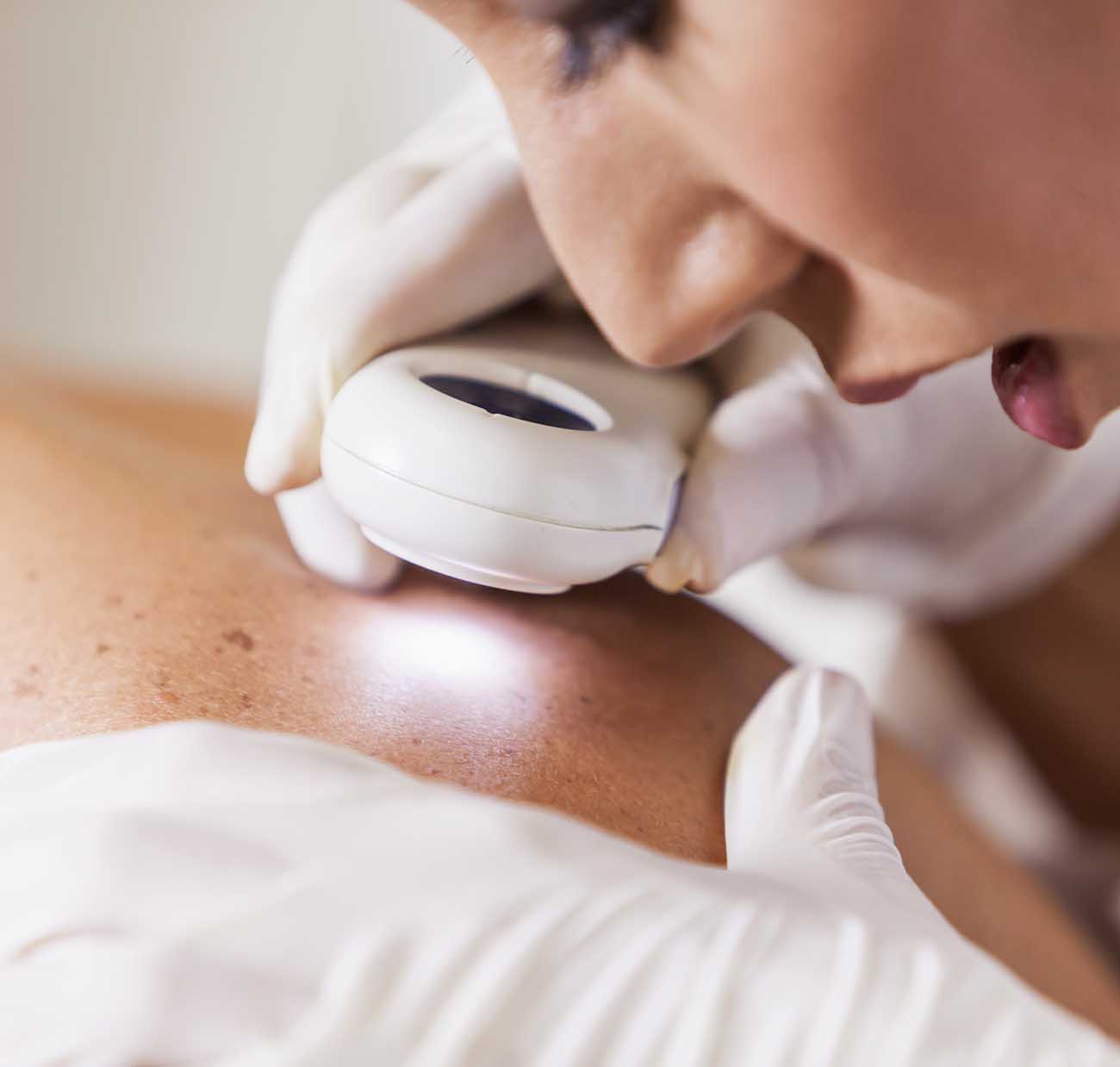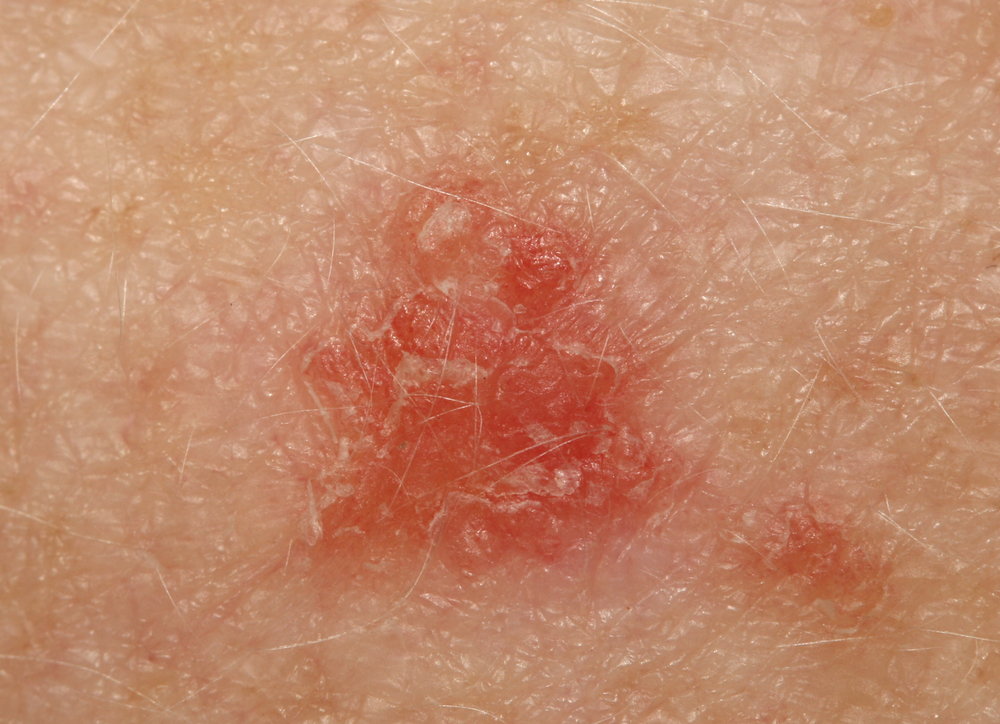Squamous cell carcinoma
Squamous cell carcinoma spreads fast and requires urgent treatment
Squamous cell carcinoma is a common, and occasionally aggressive form of skin cancer. It develops in the middle and outer layers of the skin and is the result of earlier sun damage. It should be treated urgently, as it can spread throughout the body and cause serious health complications.
Squamous cell carcinoma (SCC) has the capacity to spread to lymph glands and other parts of the body and in rare cases may be fatal. All but the most advanced cases are usually cured by simple treatment. Surgical treatment is straightforward and curative and can be done in almost every case as a simple walk-in walk-out local anaesthetic procedure.


Consultation
- Detailed history of your skin concern
- Total skin examination
- Holistic assessment of your health
- Diagnosis
- Discussion of treatment options
- Personalised treatment plan
- Treatment
FAQs
SCC often presents as red or brown-coloured patches of skin that may crust and bleed. These skin patches might look like open sores, or they might look like warts.
See answer

As soon as possible. When SCC reaches a more advanced stage, it may spread to the lymph nodes, making successful treatment harder to achieve.
See answer

If the SCC has spread to the lymph nodes, radiation therapy, or chemotherapy may be necessary. Until your SCC is examined in person, it’s impossible to advise on the best treatment options for you.
See answer

SCC tends to occur in parts of the body that have been previously exposed to the sun, such as the head, face, neck and shoulders. But they can appear anywhere.
See answer

On average it takes SCC a year or two to spread, but each individual case is different. That’s why it’s important you have your SCC examined as early as possible.
See answer

SCC that hasn’t spread can be treated by a single appointment that will involve a walk in, walk out surgical excision, under local anaesthetic. Advanced stage SCC treatment may last several weeks.
See answer

A successful excision wound will take 3-6 weeks to heal completely. If you have treatment for a more advanced form of SCC, your recovery may take longer.
See answer



